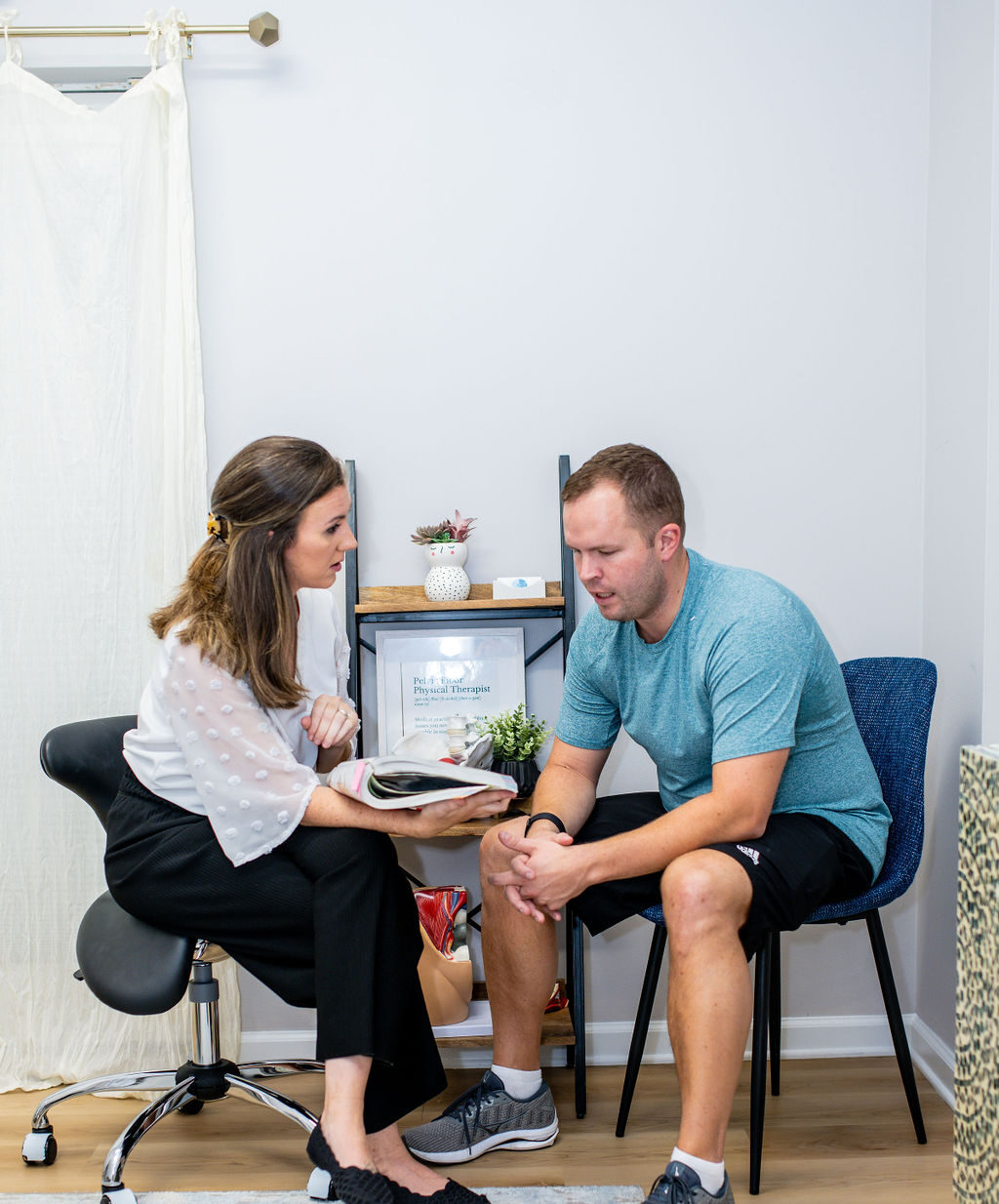June is Men’s Health Awareness Month—an important reminder to talk about something often overlooked: men’s pelvic health.
Pelvic floor issues in men are more common than you think and can affect up to 1 in 6 men in their lifetime. Prostate surgeries increase this risk with the most common symptom occurring after prostate surgery is urinary incontinence. At Break Free Pelvic Health & Wellness, we work with men in the Lowcountry that are struggling with the following:
- Prostatectomy recovery
- Prostatitis, especially nonbacterial
- Urinary symptoms like leaking, painful urination or difficult urination
- Bowel symptoms like constipation, IBS, fissures and hemorrhoids
- Genital pain like testicular, penile and/or anal pain
- Lower back pain, hip pain, groin pain and tailbone pain
- Sexual symptoms like erectile dysfunction, painful erection and/or ejaculation
We see men dealing with these symptoms daily without a clear direction on where to go for help. Usually an urinalysis is negative for infection, ultrasounds are negative, MRI/CT scans are negative – everything “medical” has been ruled out as a cause that leaves men feeling frustrated. Most end up Googling their symptoms that leads them to pelvic floor dysfunction and calling our office. We want to change that by educating all that men do experience pelvic floor dysfunction and it is very treatable.
We know it’s not always easy to talk about things like erectile dysfunction, urinary control, or pelvic pain – but please know that our Charleston team is used to helping men with these symptoms and we are ready to help. Many men (and women!) have embarrassment or fear to seek help for their symptoms of pelvic floor dysfunction. One, you never have to be embarrassed at our office – we’ve heard it all and nothing is TMI for us! And two, let’s settle your fears by telling you a few things we do to get to the root cause of pelvic floor dysfunction in men.
- We find many times the spine is a big contributor to pelvic floor dysfunction. If you’ve had a back injury, the lower nerves impact the pelvis and innervate the genitals. Muscles in this area can become tight and painful causing many symptoms. Much of our assessment and treatment includes assessing and treating the spine.
- The abdominals are another big contributor to pelvic floor dysfunction. Testicular pain in particular is usually related to overcompensation of the rectus abdominis and oblique muscles. The abdominals and pelvic floor muscles work together for stability! So the abdominals are a big player here.
- Yes, we do internal examinations and treatments of the pelvic floor in men if we believe the internal muscles, called the “levator ani” are causing symptoms. There are also muscles under the scrotum that can cause testicular, penile and anal pain. Symptoms of levator ani tension includes deep anal pain, penile pain, constipation, hemorrhoids, hip and lower back pain.
- Erectile dysfunction is multi-factorial – meaning it can be a blood flow issue, muscle issue and/or psychological. We make sure we address all of the above and that you are receiving the proper medical tests if you have not yet. There are many muscles that must work and coordinate to achieve and maintain an erection.
So, with those few things – we assess everything from the pelvic floor to the spine, to the abdomen, to the hips to get to the root cause of pelvic floor dysfunction in men. We want you to feel empowered in coming to us! We understand how life altering pelvic floor dysfunction can be – from worrying about wearing depends and pads, to changing your routine based on your bowel movements, to intimate relationships, to exercise – we understand the impact and how scary symptoms can be without answers.
That’s why at Break Free, we offer discreet, evidence-based care that’s tailored to men. Whether you’re recovering from prostate surgery, struggling with lingering pain, or unsure why your symptoms started, we’re here to help.
Help us spread the message: pelvic floor therapy isn’t just for women!
Curious if pelvic PT could help you or someone you care about? Call us at 843-471-0351 to schedule a private consultation. You deserve answers—and relief.
